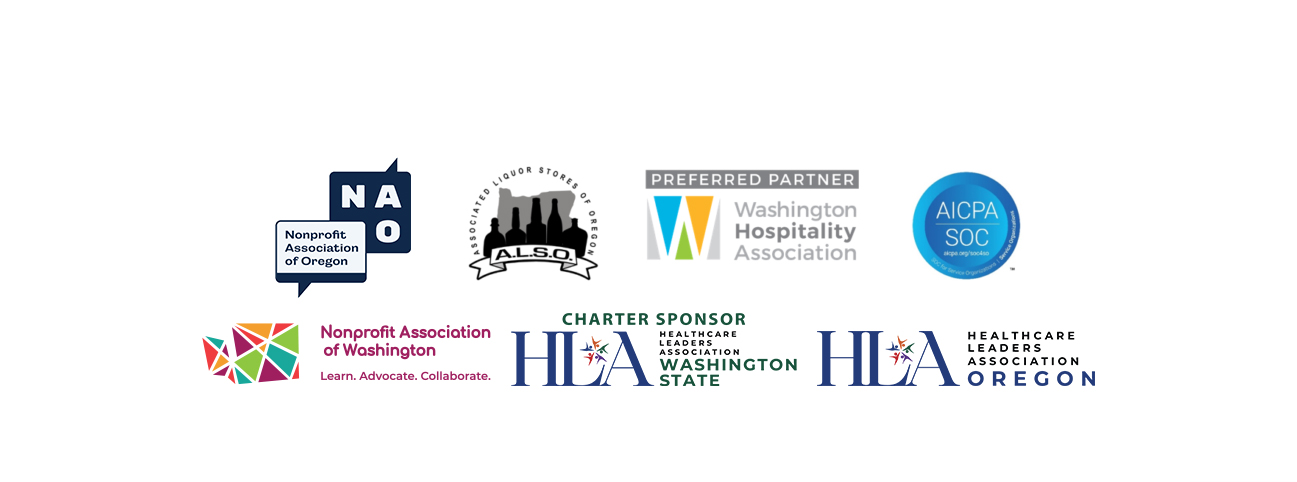Under the Equal Pay Act of 1963, the U.S. Department of Labor prohibits wage discrimination based on gender. Many states, including Oregon, have reinforced this law with new legislation to ensure that employees receive equal pay for equal work as a part of Oregon payroll requirements. Governor Kate Brown signed Oregon's Equal Pay Act of 2017 (OEPA) into law in June 2017.
This guide elucidates the provisions under OEPA and Oregon labor laws, how it affects organizations and possible penalties for noncompliance.
Oregon Equal Pay requirements apply to all employers in the state, so it is a part of how to do payroll for a small business or a large business.
Oregon Pay Equity Law
Even before the OEPA, it was unlawful in Oregon to pay gender-based discriminative wages for work of comparable character. Oregon's 2017 equal pay law considers more criteria than just gender.
Below is what employers in Oregon should know about worker compensation equity., in order to ensure that processing payroll is a smooth process from the time first paycheck to the final paycheck in Oregon. Use this information for proactive compliance, the best way to stay prepared for the BOLI investigation process and any investigations you may face.
Equal Pay in Oregon - Equal Pay for Comparable Work
The OEPA prohibits Oregon employers from discriminating against employees when paying wages based on various protected classes. These include sex, race, color, national origin, age, religion, marital status, sexual orientation, disability, or veteran status. This provision applies to all forms of compensation, including things such as Oregon Travel Time Pay.
What is Comparable Work?
It's essential to understand the meaning of comparable work to ensure that workers handling such tasks get equitable compensation. Work of comparable character typically requires substantially the same skill, knowledge, effort, working conditions, and responsibility. Job titles and descriptions don't count.
When considering skill level, think about the worker's ability, creativity, coordination, experience, efficiency, agility, and precision. Such properties can help you better define the right worker for a given job and fairly compensate differently-skilled employees.
Pay Equity Is Part of Oregon Payroll
Not everything paid to an employee contributes to compensation. Understanding what compensation entails, is just one of the many things employers need to know about processing payroll in Oregon.
According to the Oregon Equal Pay Act, a worker's compensation comprises any of the following:
Equal Salaries In Oregon
Salary is a predetermined reimbursement paid for each pay period of at least a week but not longer than a month. A monthly salary shouldn't be less than the Oregon minimum wage multiplied by 2,080 hours per year and then divided by 12 months.
Comparable Benefits In Oregon
The OEPA defines benefits as the irrevocable contribution above the federal or state requirement that an employer makes to an employee. Examples include but are not limited to:
- Medical or hospitalization care
- Pensions after retirement
- Compensation for occupational illness or injury
- Life, accident, or disability insurance
- Unemployment benefits
- Vacation or holiday pay
- Sick leave pay
Equity-Based Compensation
These are non-cash payments representing ownership, investment, or membership interests in an employer's business. Stock options, restricted stock awards, stock appreciation rights, and employee stock purchase plans are examples of equity-based compensation.
Fair Bonuses
Bonus is money or something with a monetary or quantifiable value given to a worker in addition to their regular pay. It's usually to motivate employees or recognize top performers. Examples include productivity bonuses, attendance bonuses, and retention or longevity bonuses.
Fringe Benefits
These benefits are the additional welfare awarded to employees above their salary for the performance of a particular service. The law requires employers to provide social security and health insurance. An employer can voluntarily offer extras like education assistance, company car, gym membership, retirement planning services, etc.
For instance, in Oregon employers must also offer a state-approved retirement plan, or otherwise enroll in OregonSaves.
Employer Liability Under Oregon Pay Equity Law
Oregon's Equal Pay Act applies to all forms of compensation. However, the employer isn't liable when some workers don't take advantage of the valuable benefits that other employees select. If an employee declines a benefit, the amount counts as part of the total compensation paid to the worker.
Oregon Pay Equity Law Exceptions
There are exceptions under the OEPA where an employer can pay different compensation levels to various employees performing comparable work. However, the basis of the wage disparity should be a bona fide factor related to the job.
Here are the exclusions:
Merit System
The foundation of an allowable merit system should be job-related performance standards. It may use a numerical or rating scale to measure employee performance.
Seniority System
The system should recognize and compensate workers depending on their length of service with an employer.
Education
Educational factors may include the substantive knowledge someone gains through relevant coursework. It may also include certificate and degree programs completed.
Training
You can consider formal or on-the-job training in current and past positions when setting an employee's compensation.
Workplace Locations
Workplace location considerations that may lead to wage disparity include the cost of living, accessibility to the worksite, and the desirability of worksite location. You can also adjust compensation for people living in minimum wage and wage and hour zones.
Experience
Another consideration that can justify different compensation levels for comparable employees is an individual's relevant job experience.
Travel
If a worker requires to travel regularly, you can regulate their compensation accordingly.
Production Quality or Quantity
A system that measures earnings by production quantity or quality can also qualify employees for different compensation levels. That includes piece-rate work.
Any combination of these factors can justify pay adjustment for comparable work if the factors account for the entire pay difference.
Pay Equity Law in Regards to Salary History
Oregon's Equal Pay Act prohibits employers from shortlisting job applicants or determining compensation for new hires based on salary history. Seeking salary history from applicants or their previous employers is unlawful. The provision prevents potential employers from discriminating against candidates earning higher salaries than other applicants.
You can only check a worker's salary history under the following conditions:
- After giving an employment offer that includes compensation
- If the employee authorizes the salary history check
The conditions hold even when a job applicant discloses the information willingly. However, an employer who makes employment or compensation decisions based on voluntarily disclosed information doesn't violate the OEPA.
Oregon Equal Pay Act Notice Requirements
Oregon's Equal Pay Act requires employers to provide their workers with a notice of the OEPA requirements. The Oregon Bureau of Labor & Industries (BOLI) provides a poster that an employer should display for employees at every worksite.
If posters are not feasible in your practice, you can distribute written notices to your workers via regular mail or email. You can also issue copies alongside paychecks. Whichever method you choose, the handbook or manual should be reasonably conspicuous and accessible.
Limited Safe Harbor
Oregon requires employers to run equal-pay analysis. This is an evaluation process meant to correct compensation disparities among employees performing work of comparable character. Employers facing charges due to the infringement of the Equal Pay Act can take advantage of the provision.
You must complete a realistic pay analysis in good faith three years before any lawsuit on equal pay to qualify for the OEPA safe harbor. Your analysis should demonstrate reasonable efforts to eliminate all unjustifiable wage disparities cited by the complainant.
However, performing a proactive pay analysis doesn't grant you complete defense against pay equity claims. It only allows you to file a motion to bar potential compensatory and punitive damages. You may still have to pay up to two years' compensation and legal fees.
2019 Oregon Pay Equity Updates
The ban on applicant salary history inquiries came into effect in October 2017. Employees and job applicants will have to wait until January 1, 2024, to pursue private actions against employers who violate Oregon's Equal Pay Act.
The Oregon BOLI enforced all other provisions of the Act on January 1, 2019. Currently, employees and applicants can only file their OEPA-related complaints with the Oregon BOLI.
Oregon Equal Pay Act Penalties for Non-Compliance
Oregon's Equal Pay Act treats amounts owed to an employee due to unlawful compensation disparities as unpaid wages. Penalties for violating the Act include but are not limited to:
- Liability for unpaid wages
- Compensatory damages
- Punitive damages
- Injunctive relief
- Attorney's fees
If you're an employer, you can avoid compensatory and punitive expenses if you can prove that:
- You completed an equal-pay analysis on your organization within three years before someone filed a complaint in court or with BOLI.
- You removed the said wage disparities for the complainant and made significant progress in eliminating similar compensation variances for other employees.
This process is made easier through an Oregon payroll processing and reporting system, reducing the time to complete these audits and reports.
Caveat: You cannot discriminate against a worker because of making a wage disparity complaint or testifying in a case related to pay equity. Further, the OEPA prohibits employers from reducing an employee's compensation to comply with the pay equity law.
How Oregon Pay Transparency and Pay Equity Impact Employers
Since Oregon's Equal Pay Act prohibits investigating a job applicant's salary history, you should train your recruiters on lawful hiring procedures. Consider reviewing and updating your job application and interview questions to avoid asking prohibited questions.
If you must have compensation disparities for comparable work, have legal reasons for them. Be sure to perform equal-pay analyses periodically to ensure compliance with the Act. It can also defend you from punitive and compensatory damages if an employee or job applicant files a complaint.
Final Thoughts on Oregon Equal Pay
When it comes down to processing Oregon payroll, ensuring equal pay and compliance with the Oregon Equal Pay Act is just one of the many tasks that employers need to take care of, and just one of the many Oregon labor laws to be aware of.
That's why employers should consider turning to an Oregon payroll provider for a modern, cloud-based Oregon payroll solution so that employers can deliver the perfect paycheck every time. If you are struggling with compliance, than now may be the best time to switch payroll providers.
To learn more about how GNSA is already helping countless businesses manage and process Oregon payroll, contact us today.


.png)


